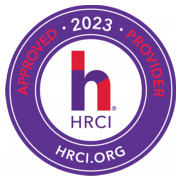| Date | Venue | Fee | |
|---|---|---|---|
| 18 May - 22 May 2026 | Dubai – UAE | $ 5,950 | Register Now |
| 13 Jul - 17 Jul 2026 | Zagreb - Croatia | $ 5,950 | Register Now |
| 21 Sep - 25 Sep 2026 | Dubai – UAE | $ 5,950 | Register Now |
| 16 Nov - 20 Nov 2026 | London - UK | $ 5,950 | Register Now |
| 25 Jan - 29 Jan 2027 | Dubai – UAE | $ 5,950 | Register Now |
About the Course
The business climate is ever-evolving, global, and innovative, requiring organisations to use their resources effectively and powerfully. HR in the Public Sector Organisations must be effective, efficient, and nimble to fulfil their current and future needs to successfully satisfy the public interest and relevant stakeholders in the volatile, uncertain, complex, and ambiguous environment we live in.
The most valuable resource for any organisation is its human resources. All the individuals who work for or contribute to the enterprise in some manner are considered to be human resources. These people may be employed (full-time), employed as independent contractors, freelancers, or engaged in another capacity. Human Resource Management (HRM) is the process of hiring individuals, providing them with the necessary training and compensation, creating policies pertaining to them, and creating retention plans. In other words, managing people to improve performance is called Human Resource Management. How well this is done influences corporate culture and employee engagement. Employee engagement increases productivity results in higher-quality work, and improves customer satisfaction.
This Human Resources in the Public Sector Organisations training course offers conceptual and experiential knowledge of human resources and human resource management with a focus on public sector organisations. It covers every human resource concept and best practice such that delegates are able to: define Human Resource Management, describe the Human Resource Management Scope and the steps involved in managing human resources, the capabilities of HR professionals and the role HRM plays in performance management. Additionally, the organisations’ strategies for hiring and keeping employees and the Human Resource Planning process are addressed, along with creating an understanding of the HRM process for managing employee performance.
Core Objectives
The delegates will achieve the following objectives:
- Understand the distinctions between human resources and human resources management
- Develop awareness of the larger context of public sector organisational effectiveness and its relationship to human resources
- Assess staffing needs and successfully fulfil them
- Onboard and train new staff successfully
- Address employee experience for retention and promotion
- Utilise organisational resources for employee benefit
- Navigate employment law and workplace regulations
Training Approach
This dynamic and compelling training course is offered in a workshop setting, allowing participants to be introspective, reflective, enriched, and nourished. It includes reading best practices and board governance theory content, engaging in discussion to deepen knowledge, small group breakout sessions to intensify learning, training videos to enhance the lectures, and delegates role play and conversation mocking to actualise learning.
The Attendees
This training course is for people to develop themselves and their ability to be effective Human Resource Leaders.
Likewise, it will be valuable to the professionals but not limited to the following:
- HR Managers and Supervisors
- Entrepreneurs
- Individuals aspiring to HR Leadership and/or Management Roles
- Government Professionals who Lead Teams
- People seeking Career Advancement
Daily Discussion
DAY ONE: FOUNDATIONS OF HUMAN RESOURCE MANAGEMENT (HRM)
- Defining Human Resources Management and Its Dimensions
- Creating the Organisational Context for HRM
- Understanding the Objectives of the Public Sector Organisation
- Reviewing Models of Human Resources Management: Fombrun, Harvard, Guest, and Warwick
- Developing the Skills needed to be Successful HRM Staff
DAY TWO: ELEMENTS OF HUMAN RESOURCE MANAGEMENT I
- Planning Staff Levels and Positions
- Aligning Staffing with the Public Sector Organisational Goals
- Creating and Implementing Effective Recruitment Processes
- Conducting a Fair and Efficient Selection Process
- Onboarding Staff Members for Successful Acclimation
DAY THREE: ELEMENTS OF HUMAN RESOURCE MANAGEMENT II
- Performance Management
- Performance Assessment Process and Systems
- Staff Training and Professional Development
- Retaining and Motivating Staff
- Promoting and Advancing People
- Key Strategies for Staff Retention
DAY FOUR: ELEMENTS OF HUMAN RESOURCE MANAGEMENT III
- Succession Planning
- Designing Compensation and Benefits
- Honouring Diversity, Equity and Inclusiveness in Staffing, Compensation and Benefits
- Utilising HR Information Systems
- Informing Decision-making with HR Data and Analytics
DAY FIVE: EMERGING ISSUES IN HUMAN RESOURCES MANAGEMENT
- Identifying and Understanding Relevant Employment Law
- Worker Protection Issues: Mental Wellness
- Telework/Remote Work and Flexible Scheduling
- Workforce Demographic Changes and Relevance to HRM
- Human Resource Managers: Skills for the Future of Work
Certificate Awarded
Upon successful completion of this training course, participants will be awarded a Certificate of Completion from XCalibre Training Centre, acknowledging their accomplishment. This certificate serves as a testament to their dedication to developing their skills and advancing their expertise in their respective fields.

Course Enquiry

A Human Resource Certification Institute (HRCI)® Pre-approved Training Course


